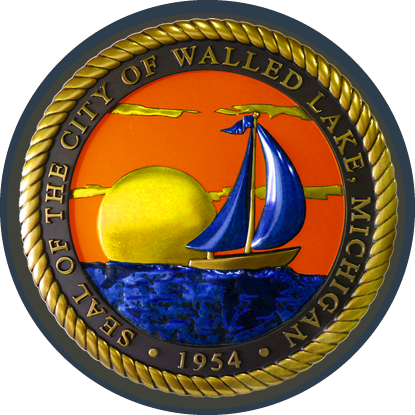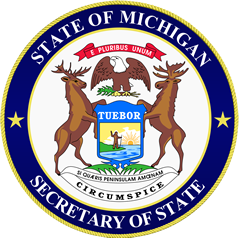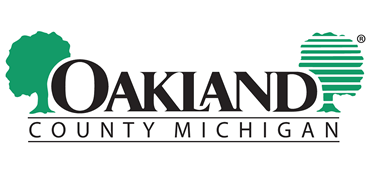Protect the Watershed
Frequently Asked Questions
What Is an Outfall?
The City of Walled Lake has thirty-six known outfalls into Walled Lake. An outfall is any drain, culvert, tube, pipe or catch basin that empties into Walled Lake. These outfalls drain storm water, snow melt and pollutants from the surrounding watersheds into Walled Lake. Animal waste, illegal sewer dumping, lawn fertilizers, pesticides and other chemicals are only some of the possible pollutants that may enter Walled Lake through these outfalls.
Remember: please report any dumping, pollution or suspicious discharge to the City of Walled Lake at (248) 624-4847 or email This email address is being protected from spambots. You need JavaScript enabled to view it.
Help Protect Water Quality in the Rouge River, the Huron River, and Walled Lake.
Lawn Watering?
- What time of day is best for watering the lawn?
Early morning and evening are the ideal times for watering your lawn.
- How much water does my lawn need?
Lawns require approximately 1 inch of water per week. Too much water can result in shallow roots, low tolerance to heat and drought, and increased susceptibility to disease.
- How do I know if my lawn has too much water?
One sign of an over-watered lawn is water run-off. Water running out onto the sidewalk, driveway, or street carries essential nutrients away from your lawn. To make matters worse, water run-off picks up pollutants and flows into the storm drains. Additionally, if the lawn has a spongy feeling after watering, the lawn may be receiving too much water.
- Does a watered lawn mean a healthy lawn?
Although it is helpful to water your lawn during long dry weather periods, it does not mean you will have a healthy lawn. The depth of the roots and the height of grass blades are what indicate a healthy lawn.
- What else should I know?
Make sure sprinklers are directed to water only the grass, not the sidewalk, driveway, or street. This small measure helps to ensure pollutants on those surfaces will not go down the storm drains, along with your money.
If you have any questions or concerns regarding good watershed stewardship when watering your lawn, please call the City of Walled Lake at (248) 624-4847 or email This email address is being protected from spambots. You need JavaScript enabled to view it.
Please Don't Feed the Waterfowl
Feeding the ducks near a calm body of water . . . it seems like a relaxing, harmless activity. However, did you know feeding the ducks is not healthy for the Rouge River or Walled Lake? Feeding ducks, geese and other waterfowl encourages them to be dependent on humans. Instead of migrating south or continuing their flight throughout the area in search of food and shelter, waterfowl stick close to places where they are fed. As a result, many local parks and ponds are overrun with waterfowl (and their feces). The type of food we feed ducks and geese presents another problem. Just like humans need certain foods in their diet (vegetables, fruits), ducks and geese need certain types of food (NOT BREAD). In addition, waterfowl waste contributes nutrient and bacteria pollution to Walled Lake and the Rouge River. Just remember, a sufficient amount of food already exists within a lake or river for native waterfowl. So, for the benefit of Walled Lake, the river and the waterfowl…
Please Don’t Feed the Waterfowl!
If you have any questions or concerns regarding waterfowl feeding, please call the City of Walled Lake at (248) 624-4847 or email This email address is being protected from spambots. You need JavaScript enabled to view it.
Proper Pet Waste Disposal
Pet animal waste contributes to pollution in our storm drains and waterways. As a way to keep our parks clean and open for people and pets to enjoy, the City offers Mutt Mitts. These dispensers make biodegradable bags conveniently available for pet owners to clean up after their pets. Simply place used bags in the nearest garbage container. That’s all there is to it.
The dispensers are found at the following parks: Hiram Sims, Marshall Taylor, Riley, and the City Event Field. Please help keep our parks clean and enjoyable by cleaning up after your pets!
If you have any questions or comments about the Mutt Mitt program, please call the City of Walled Lake at (248) 624-4847 or email This email address is being protected from spambots. You need JavaScript enabled to view it.
Travel Trailer Waste Disposal
You may dispose of travel trailer waste water until mid-October at Proud Lake Campground in Milford at no charge, but you must have a Recreation Passport. From I-96, take the Wixom Road exit and go north approximately 6 miles to the park entrance. The park is open year-round with modern camping facilities from April 16 to October 16. More information on Proud Lake Campground (including driving directions) can be obtained at www.michigan.gov/dnr. You may also call the park phone number at 248-685-2433 between 8:00 a.m. and 4:30 p.m. daily.
Car Care and the Environment
Car care and maintenance is an important consideration, when trying to protect the environment. Many vehicle fluids such as engine oil, transmission fluid, power steering fluid, brake fluid, hydraulic fluids, and radiator fluid can be dangerous; therefore, it is important to repair any leak your vehicle may have.
If you change your oil, put the used oil in a sturdy container, label it, and take it to a business that accepts used oil (such as Murray’s), or take it to one of the scheduled Household Hazardous Waste Days.
Antifreeze, which contains ingredients poisonous to people, fish, and wildlife, is also dangerous to the environment, and should be treated in the same manner as waste oil.
In case of a spill, with any of these types of materials, use kitty litter or sawdust to absorb the spill and sweep up the absorbent material after it has taken effect. If the spill takes more than one gallon of absorbent material, take the material to a household hazardous waste disposal center. If the spill is small, place the absorbents in a strong plastic bag and place it in the trash.
There are also important tips for washing your vehicle. Wash your vehicle on the lawn, instead of the driveway, to reduce runoff into the street and down the storm drains. (You will also water your lawn at the same time). Reduce the amount of soap you use, using non-phosphate biodegradable detergents and mild soaps. Using water from a bucket, instead of a hose, saves water. Wash only one section of the car at a time. Rinse quickly, using a pistol-grip nozzle with high pressure and low volume.
The following are some soap recipes that are environmentally friendly:
Car Soap
- ¼ cup vegetable oil-based liquid soap
- Warm water
Mix ingredients in pail.
Car Wax
- 1 cup linseed oil
- 4 tbsp. carnauba wax (available in auto supply stores)
- 2 tbsp. beeswax
- ½ cup vinegar
Put ingredients in top half of a double boiler or saucepan. Heat slowly, until wax melts. Stir and pour into a heat resistant container. After wax has solidified, rub it on the car with a lint-free cloth. Saturate a corner of a cotton rag with vinegar and polish the wax to a deep shine.
Vinyl Cleaner
- ¼ cup washing soda (sodium carbonate)
- 1 cup boiling water
Dissolve washing soda in boiling water. Let cool slightly, to avoid burns.
Apply with sponge and wipe off with damp cloth.
For additional information, please call the City of Walled Lake at (248) 624-4847 or email This email address is being protected from spambots. You need JavaScript enabled to view it.
Fertilizer Information
Many of us want the ideal green summer lawn and think fertilizer is the answer. This may not always be the case. Obtaining a healthy lawn can sometimes be accomplished by simply keeping grass 3 inches tall, which helps promote root growth and helps shade out weeds, and recycling nitrogen and potassium rich grass clippings back into the lawn. The best way to know if your lawn needs fertilizer is to test the soil. You can pick up an easy-to-use soil nutrient testing box at the Michigan State University Extension – Oakland County office.
If the soil test determines your lawn needs fertilizer, consider these important items when shopping for the right one.
- A slow-release fertilizer is highly recommended, because it promotes steady, uniform growth and is water soluble, which is better for water quality.
- Avoid fertilizer-herbicide mixtures.
- A low- or zero-phosphorus fertilizer is best for surface water quality. Excessive phosphorus can cause abundant plant and algae growth.
When applying fertilizers.
- Follow the label instructions EXACTLY.
- Never apply fertilizer at rates heavier than recommended.
- Fertilize in late spring and early fall.
- Only apply fertilizer on the turf and avoid over-spraying.
- Keep fertilizer at least 20 feet from the edge of lakes, rivers, streams, and storm drains.
If you need additional information about proper fertilization techniques and their role in protecting the watershed, please call the City of Walled Lake at (248) 624-4847 or email This email address is being protected from spambots. You need JavaScript enabled to view it.
West Nile Virus
To help protect your family from West Nile Virus, remember these important tips.
- Wear protective clothing such as long pants and long sleeve shirts.
- Limit outdoor activity at dusk and dawn when mosquitoes are most active.
- Apply insect repellants, per label directions, as needed.
- Lessen mosquito breeding grounds around your home, by draining outdoor potted plants and eliminating all areas of standing water.
- Clean roof gutters often, to prevent clogging and standing water.
- Drain water that collects on the top of a pool cover.
For more information on West Nile Virus, please call the Oakland County Health Department’s West Nile Virus Information line at 1-877-377-3641 or visit their website at www.oakgov.com/health.
Did You Know…
- The City of Walled Lake is located in both the Rouge River and the Huron River watersheds. A watershed is a region of land that drains into a body of water: lake, river, or stream. Walled Lake is the headwaters to the Middle I Branch of the Rouge River. The northern part of the city is part of the Huron River watershed.
- Storm drains connect directly to our lakes, rivers, and streams. When it rains and/or snow melts, anything along the roads, sidewalks, and parking lots runs into the drains and into our waterways. This is also true if you wash your vehicle in the driveway, wash your driveway off with the hose, or have over-spray when watering your lawn.
- You can help! There are several ways that you can help protect our lakes, rivers, and streams. To learn how, please call the City of Walled Lake at (248) 624-4847 or email This email address is being protected from spambots. You need JavaScript enabled to view it.
Where Does the Water Go?
Did you ever wonder where the rain or melting snow and ice goes after it runs down a drain on the side of the road or in a parking lot? The water, now known as storm water, flows across the ground and pavement, carrying any debris and pollutants found along the way, into a storm drainage system. Storm drainage systems are connected directly to our waterways. Therefore, it is important to clean any debris away from the drain, to make sure vehicles and chemical containers do not leak, and to not over-fertilize. Also, NEVER pour anything into a storm drain. “Storm drains aren’t garbage cans!”
For additional information, please call the City of Walled Lake at (248) 624-4847 or email This email address is being protected from spambots. You need JavaScript enabled to view it.
Alliance of Rouge Communities (ARC)
Alliance of Rouge Communities, or ARC, is a 501(c)(3) organization that provides an institutional mechanism to encourage watershed-wide cooperation and mutual support for water quality permit requirements. They restore beneficial uses of the rouge River to residents. ARC is a voluntary public watershed entity currently comprised of 35 municipal governments, 3 counties (Oakland, Wayne and Washtenaw), 3 educational institutions (Henry Ford College, Schoolcraft College and University of Michigan Dearborn) and the Wayne County Airport Authority as authorized by Part 312 (Watershed Alliances) of the Michigan Natural Resources and Environmental Protection Act (MCL 324.101 to 324.90106) as amended by Act No. 517, Public Acts of 2004.
The ARC was created to coordinate the water management responsibilities of the Rouge River watershed between its member organizations. Since inception, the ARC, has worked diligently to improve the water quality within the watershed.

You can also visit the Friends of the Rouge for volunteering activities and additional information in partnership with the Alliance of Rouge Communities.
Change your habits to help protect water quality in the Rouge River
Protect the Rouge River at Home
Stormwater Plan and Ordinance
MS4 Permit - Stormwater Plan - If you would like to comment on the MS4 permit please email: This email address is being protected from spambots. You need JavaScript enabled to view it. or visit the following website: https://www.allianceofrougecommunities.com/swplanreview.html
What Is an Illicit Connection/Discharge? What’s the Harm?
An illicit connection is when a pipe, intended for a sanitary sewer, ends up in a storm drain or when a pipe, intended for a storm drain, ends up in a sanitary sewer. An illicit discharge is the introduction of polluting materials into a pipe that drains to surface water or the dumping of polluting material that can impact surface water. For example: laundry waste discharging to a storm drain, swimming pool backwash water discharging to a storm sewer, or pollutants moving over impervious surfaces to a storm drain. When observing a storm drain, remember: if it isn’t raining, the storm drain should be dry and the ground water should be crystal clear.
To report an illicit connection or discharge, please call the City of Walled Lake at (248) 624-4847 or email This email address is being protected from spambots. You need JavaScript enabled to view it.
or you may call Oakland County's 24 hour hotline at 248-858-0931 or visit www.oakgov/water
For more information on the Rouge River Watershed, visit www.rougeriver.com or www.therouge.org
For more information on the Huron River Watershed, visit www.hrwc.org.
Other sites of interest include:
www.michigan.gov/dnr
www.michigan.gov/egle
www.epa.gov
De-Icing Salt and Water Quality
Salt (sodium chloride) is the most common source used for de-icing roads and sidewalks. It works by lowering the freezing point of ice and snow, allowing roadways and sidewalks to stay free of ice and snow buildup. Salt provides safety and mobility to motorists and pedestrians. In addition, salt is abundant, inexpensive, non-toxic, harmless to skin and clothes, and easy to store and use. Salt is also environmentally safe, if used and stored properly.
Because salt is a mineral found within the Earth’s crust and in the oceans, it makes sense that it is not harmful to the natural environment. However, high concentrations of salt can be harmful. Runoff from the roadways and sidewalks go into storm drains, which flow directly into our lakes, rivers, and streams. Therefore, it is important to not spread excessive amounts of salt at one time and to cover the salt when storing.







